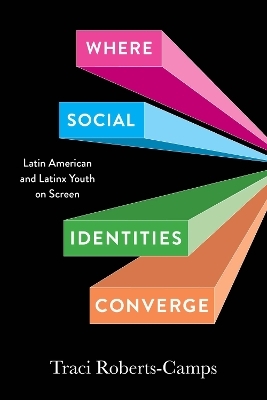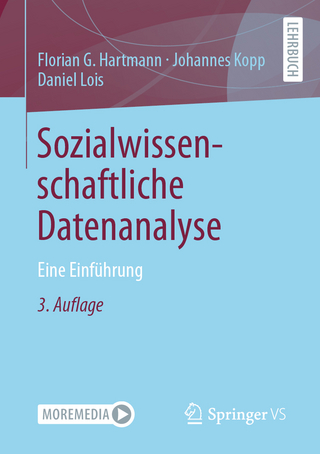
Where Social Identities Converge
Vanderbilt University Press (Verlag)
978-0-8265-0721-1 (ISBN)
- Noch nicht erschienen (ca. Dezember 2024)
- Versandkostenfrei innerhalb Deutschlands
- Auch auf Rechnung
- Verfügbarkeit in der Filiale vor Ort prüfen
- Artikel merken
Where Social Identities Converge examines adolescent girlhood as a metaphorical site in Latin American and Latinx film. Author Traci Roberts‑Camps analyzes the work of a series of female directors from Argentina, Ecuador, Mexico, Peru, Venezuela, and the United States to understand how female adolescence and young adulthood are represented in film. She argues that using an intersectional lens reveals how these directors present the image of adolescent girlhood as a site of early trauma that presages women’s lived experiences with institutional, interconnected forms of oppression. The book thus considers intersectionality through young female protagonists who represent identity struggles in Latin America and US Latinx communities. In doing so, it examines a range of genres, such as fictional film, documentary, and television miniseries. Each chapter includes a close reading of specific scenes that offer insight into the young female protagonists’ multiple identity markers and a continuous comparison between chapters.
Traci Roberts-Camps is a professor of Latin American literature and film and chair of the Department of Modern Languages and Literature at the University of the Pacific.
Introduction
Chapter 1: Audacity, Intelligence, and Indigenous Connections in Patricia Arriaga‑JordÁn’s Juana InÉs (2016)
Chapter 2: Gender, Class, Sexuality, and Ethnicity in Aurora Guerrero’s Mosquita y Mari (2012) and Viviana Cordero’s No robarÁs…a menos que sea necesario (2013)
Chapter 3: Intersectional Subjectivity in Gabriela David’s La mosca en la ceniza
Chapter 4: Indigeneity and the Rural/Urban Continuum in Claudia Llosa’s Madeinusa (2005) and La teta asustada (2009) and Itandehui Jansen’s Tiempo de lluvia (2018)
Chapter 5: Intersectionality and Inter‑Nationality in Kaori Flores Yonekura’s Nikkei: Un viaje extraordinario (2014) and Cecilia Kang’s Mi Último fracaso (2016)
Conclusion
Notes
Bibliography
Index
| Erscheint lt. Verlag | 15.12.2024 |
|---|---|
| Zusatzinfo | 28 b&w images |
| Verlagsort | Tennessee |
| Sprache | englisch |
| Maße | 152 x 229 mm |
| Themenwelt | Kunst / Musik / Theater ► Film / TV |
| Sozialwissenschaften ► Kommunikation / Medien ► Medienwissenschaft | |
| Sozialwissenschaften ► Soziologie ► Gender Studies | |
| ISBN-10 | 0-8265-0721-2 / 0826507212 |
| ISBN-13 | 978-0-8265-0721-1 / 9780826507211 |
| Zustand | Neuware |
| Haben Sie eine Frage zum Produkt? |
aus dem Bereich


